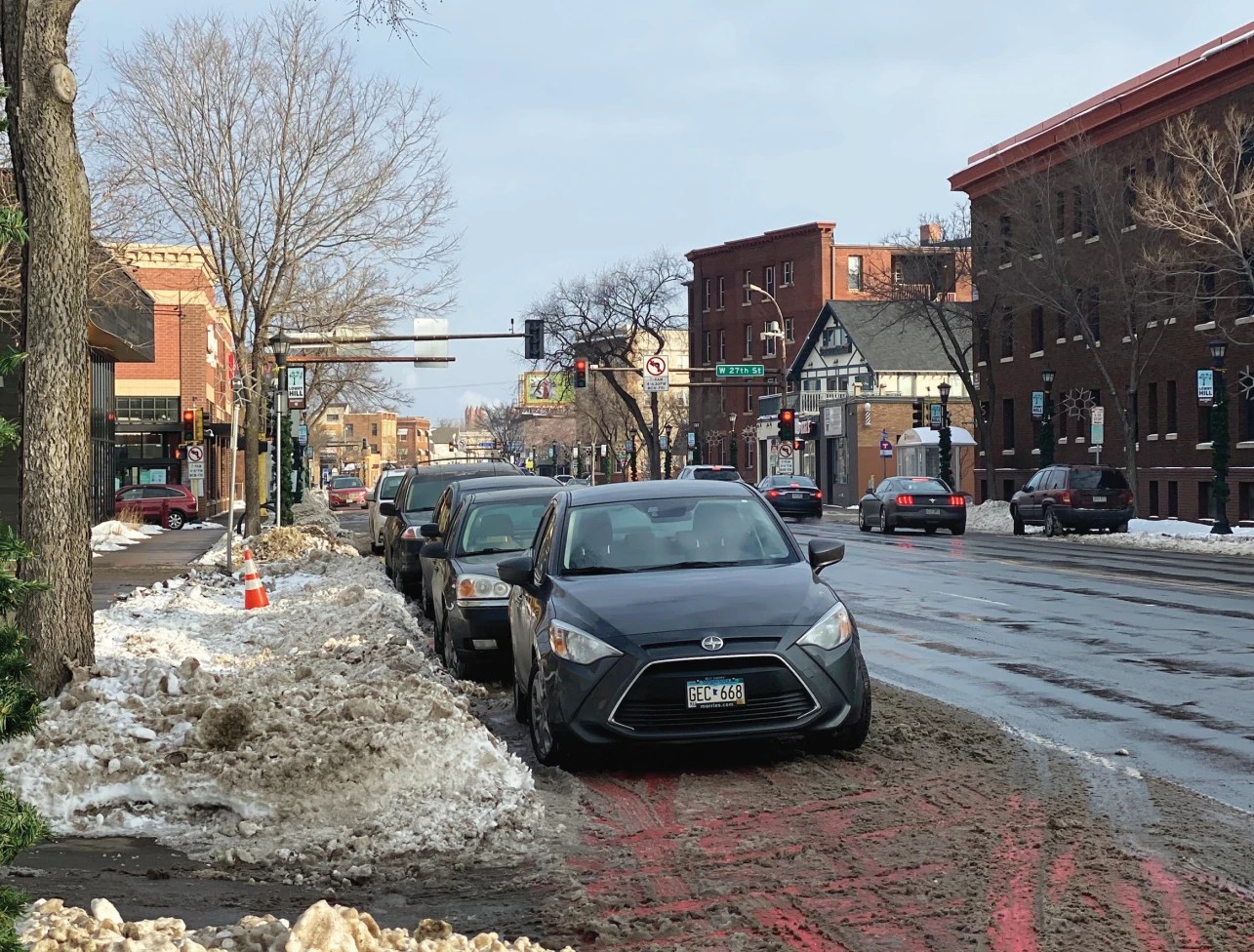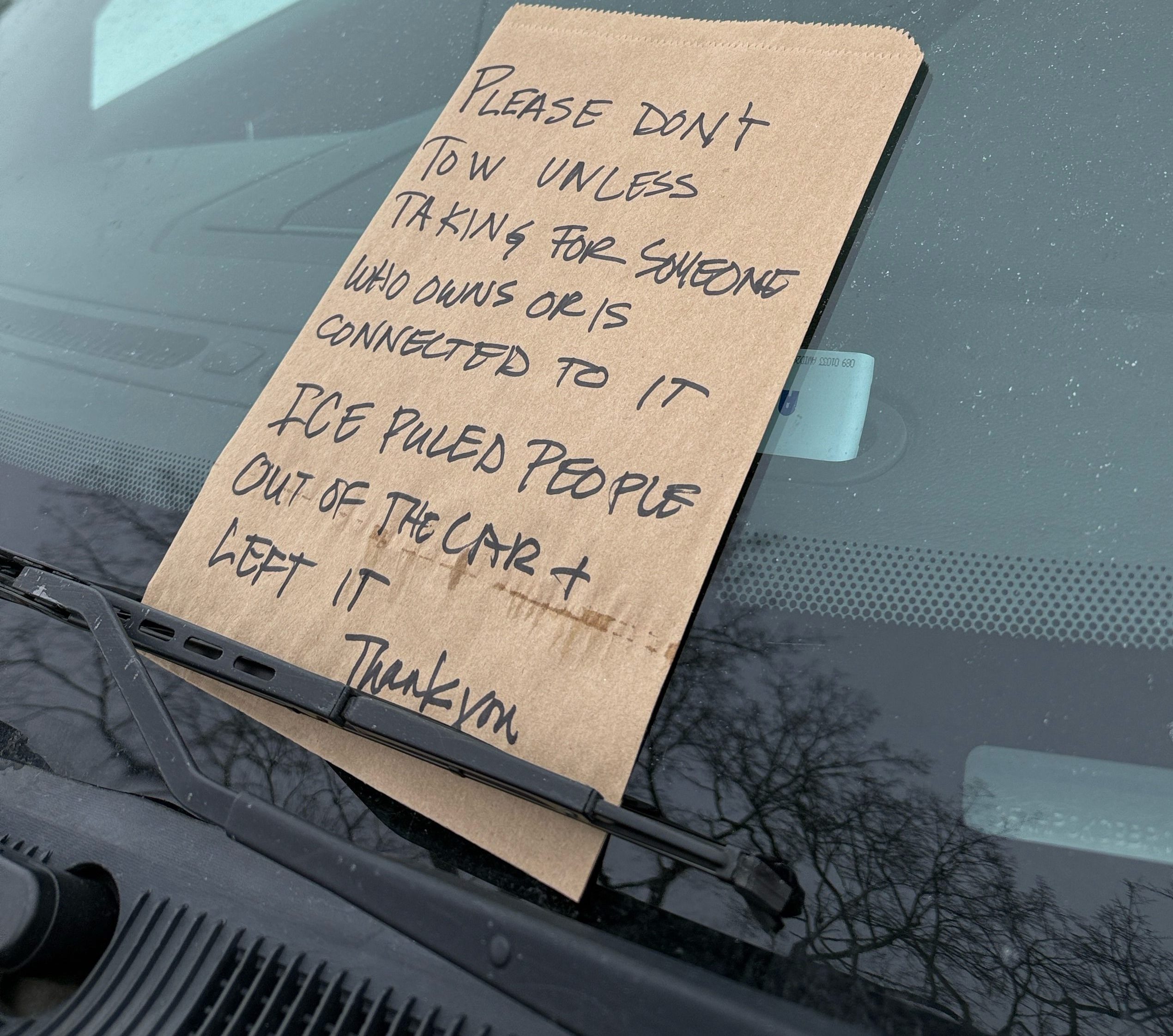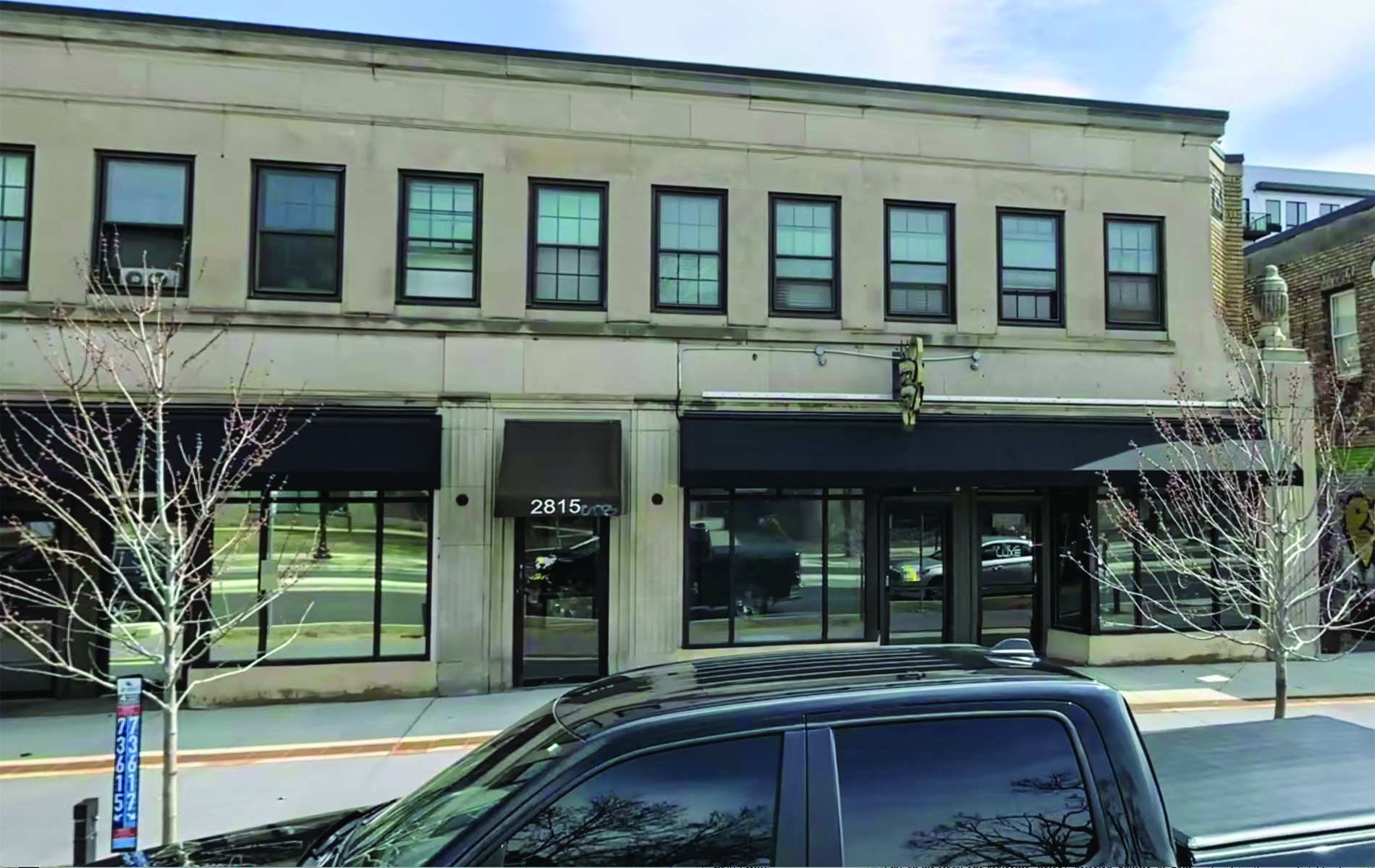Karen, a former resident of the Kenwood Neighborhood and traveling piano teacher, still shops at her favorite stores along Hennepin Avenue and enjoys some Chocolate Cha Cha ice cream at Sebastian Joe’s. Karen has limited mobility and relies on convenient parking, preferably disabled spots. She stopped shopping at Penzey’s Spices and Magers & Quinn when the street parking was removed between Lake and 31st. “The closest parking spots are a 15-minute walk for me with my bad hip.” When Karen heard about the proposed changes to Hennepin Avenue with the removal of 280 parking spots, she said that she will no longer be able to shop along the corridor. “I don’t want to, but I will have to drive to the shopping areas that have close, designated disability parking. I feel so sorry for these local, one-of-a-kind businesses. Why is the city making it so difficult for people to shop on Hennepin?”
That is a question that many area business owners and employees are asking. Natalie, a fitness instructor and mother of four, worries whether she can continue to work on Hennepin Avenue. In the past she has parked on the street and left the twelve dedicated parking spots in the adjacent lot for one of her clients, with an average of 25 people in a class and as many as 45. However, with the increase in crime, Natalie says that she does not feel safe parking a block away and now has to park in the lot. Furthermore, before she has even gotten to work to teach the 8:45 AM class, she has driven from St. Louis Park and dropped her children at two different locations. “Public transportation is not an option for me.” Another trainer said that he thinks that the new red bus lanes have been great. “So many of our clients park in the red zone in the off hours. I do not understand why the City is replacing these with a dedicated bus lane and removing this convenient parking option.” Peggy works out at the gym four times a week. “I live on Cedar Lake Parkway and need to drive. I will have to find another gym if street parking is removed. I do not want to add the hassle of looking for parking to my exercise routine.”
Across the street, another business is hearing that parking is a concern for their clients. Tiffany says that in the last month that three clients have phoned the Metro Pet Animal Hospital prior to their appointment to find out where they could park. “They want close-by parking as they are concerned about crime and safety walking from their cars.” Metro Pet, formerly Animal Medical Clinic and part of the neighborhood since the 1970s, does not have any spots for clients and relies on the street parking that has always been readily available. Tiffany also says that 30% of their clients are elderly and cannot walk very far and about 25% come from outside the metro area. It is probable that that parking limitations will force their clients to go elsewhere. Dr. Kristen Harris said that she is upset that the City of Minneapolis never contacted her as a business owner about her needs. “I have started looking for parking spots in the neighborhood but have not had any luck finding ones to rent.” In the past, spots have rented for $200/month; however, the demand may drive that price up and be another cost for struggling local businesses.
After “Phase One of Hennepin reconstruction from 36th Street to West Lake Street had largely negative consequences to businesses on the corridor,” the Uptown Association has asked that the City revise its plan so that it “meaningfully incorporates the concerns and feedback of the Uptown business community. The vibrancy of this node depends on engaging this group of stakeholders, which the City failed to do in their plan for Phase One of Hennepin Reconstruction, and has failed to do thus far in Phase Two.” The blighted, empty storefronts are the best indicator of the failure of Phase One. The Association mentions Phase Two’s destructive impact on the 150 small businesses on the corridor: elimination of 92% of the on-street parking, two years of construction, and an assessment on the businesses to pay for the project. The Association has asked that the Phase Two plan be revisited to take into consideration: the state of the business area of Phase One; look at how the pandemic has impacted and changed commuting patterns and how people shop, with delivery services and curbside pickup as the new normal; and include the Uptown businesses that have been completely ignored in the process. With Kitchen Window’s recent closure, businesses between Lake and Douglas Streets are concerned about their futures. The Uptown Association sees that Phase II is ‘history repeating’, and the City is pursuing their agenda without learning from the mistakes of Phase One. For more information, visit – http://www.uptownminneapolis.com/southhennepin-reconstruction-campaign-forbusinesses/






